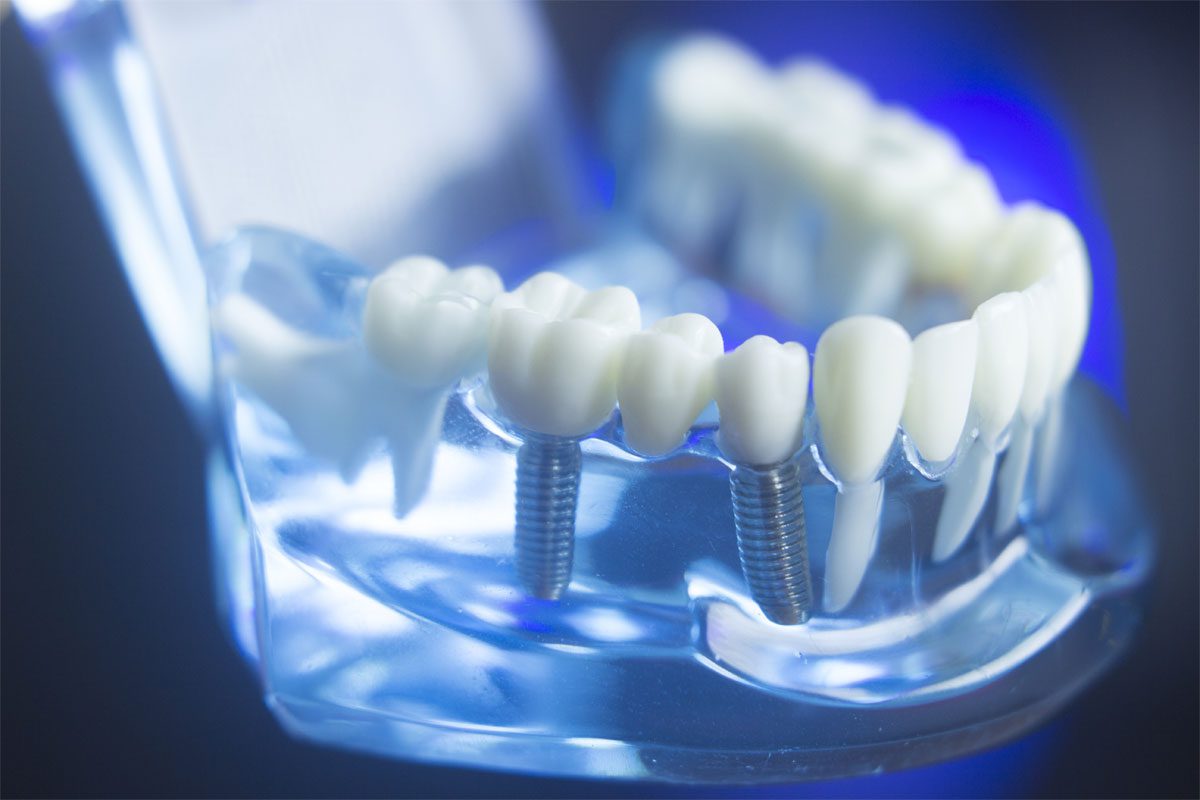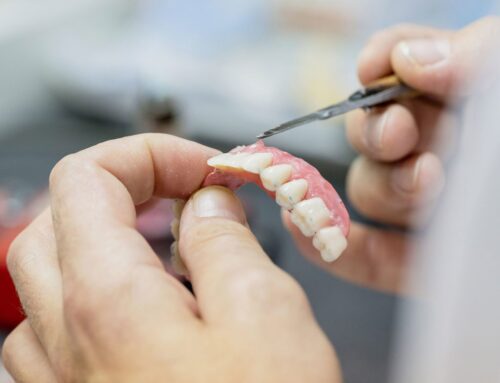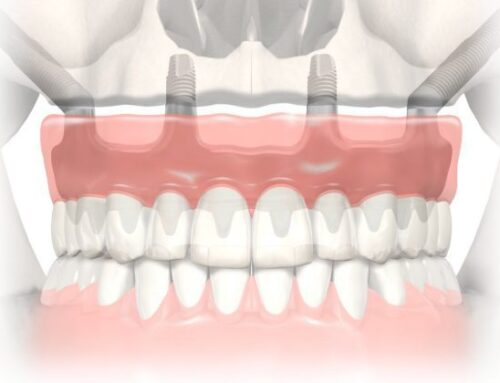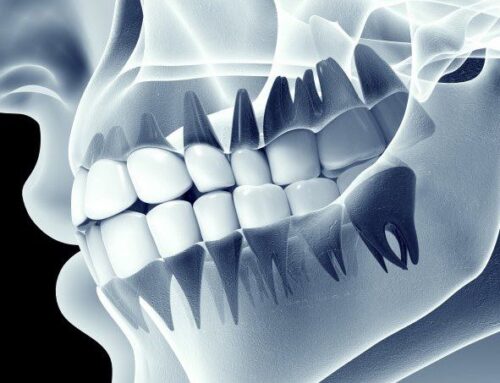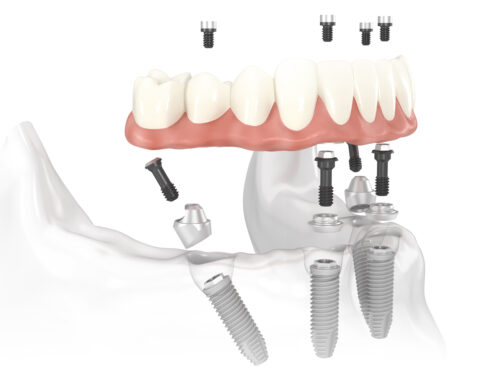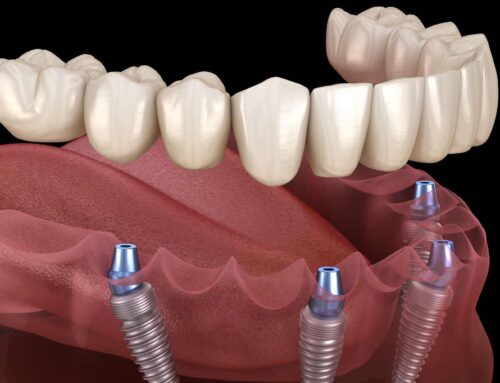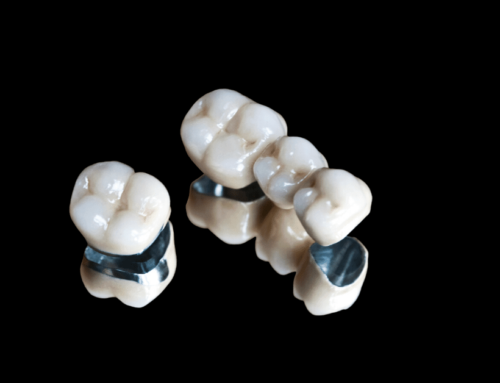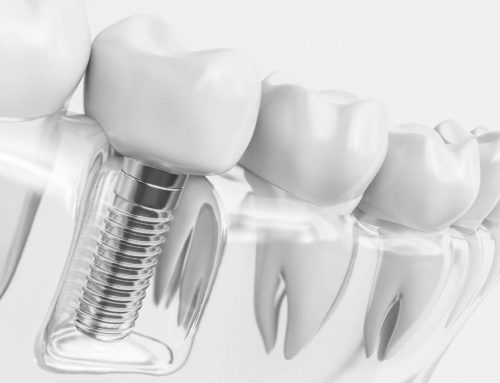All About Dental Implants
Are They Permanent? How Long Do They Last? What is the Cost?
Losing a tooth or teeth can be a devastating experience. It can be painful, impact the surrounding teeth and can negatively affect everyday functions like chewing, biting and speaking. Any dentist will tell you that you should act quickly to replace missing teeth.
Luckily, dental implants are a proven method that have come a long way with respect to their development. There are several different types of implants so you should work with your dentist to make the right choice for your situation.
To start, we’ll help you understand what dental implants are and what benefits they offer. Next, we’ll cover the various types and how they differ in addition to how long you can expect them to last and the potential cost.
What are Dental Implants?
In most instances, dental implants are widely believed to be the best way to replace missing teeth. While every dental case is different, the insertion of an implant and an artificial tooth can restore your smile and make sure your oral health is not in any danger.
An implant is a procedure that surgically attaches a metal frame to a jawbone. Once it’s secure, it holds replacement teeth in place. Implants are designed so that a replacement tooth or teeth will not shift allowing the patient to eat and speak with ease. Furthermore, they look and feel completely natural.
Essentially, the implant works as an artificial root and acts as an anchor to make sure replacement teeth are safe and secure.
Unfortunately, not everyone is a candidate for dental implants. Patients require a strong jawbone and healthy gums to withstand the rigor associated with placing a metal frame below the jawbone. If your jawbone has shrunk or never fully developed, you might need to undergo an additional procedure known as a bone graft prior to the metal frame being inserted.
One benefit of dental implants is that they fuse with the bone via a process called osseointegration. This means that the implant becomes part of the bone and is therefore permanent.
Dental Implant Process
The typical process to have a dental implant attached, includes:
- The first step is a careful examination of the patient’s mouth. Often, this will include X-rays of your entire mouth area. This will determine if a patient can proceed with receiving the dental implant.
- The initial stage of the procedure is when the dentist or specialist will place the implant into the jawbone underneath the gum tissue, which is then stitched back up. The patient is then required to wait a couple of months for the tissue to heal. As it heals, the implant will merge with the bone and attach to the gums.
- The second stage occurs once the tissue has healed. The dentist or specialist must now attach an abutment to the implant. This abutment is what connects the replacement tooth to the implant. While not common, the first two stages can sometimes happen simultaneously.
- Next, the artificial tooth is customized and then attached to the abutment. This is a simple process, but your dentist or specialist might need a few appointments to make sure the fit is perfect.
- If a patient needs several teeth replaced, then a fixed bridge, which spans an area without teeth, will be inserted at this stage. A bridge is attached to your dental implants.
While this is considered a routine dental surgery, every patient should be aware of the potential consequences that can arise. These include bleeding, infection, injury to other muscles in the sinus cavity or numbness. Additionally, there are instances where the implant does not attach itself to the bone, rendering the surgery unsuccessful.
All-On-4 Implants
There are a few different types of implants your dentist might consider for your case. Typically, it depends on how many teeth you need replaced. All-On-4 implants are a proven technique with over a 98% success rate. It utilizes four implants that immediately become anchors to a set of dentures.
This system is an evolution of traditional dentures, designed to mitigate their inability to properly fit into most mouths. It’s this drawback that prevents denture wearers from comfortably eating, speaking and chewing. Not only can this system effectively replace missing teeth, it can also replace dentures for something more comfortable and durable.
These artificial teeth are good to go shortly after surgery negating a long recovery time. They are a quick way to improve your oral health and a solution that can provide long-term results and dependability.
Unlike other dental implants, patients will not need to undergo bone grafting prior to the implant being inserted. This system uses the available bone, which negates the need for such a procedure.
The dentist or specialist will employ a combination of computer technology and surgery to determine the best location for the implant. The procedure involves two implants being placed at the front of a patient’s mouth at a 90-degree angle. Two other implants are inserted at the back at a 30-degree angle. This is done to support the implant and ensure that there is ample bone for the procedure to be successful.
This system can help patients experience a host of benefits:
- Improved function of their teeth and mouth.
- A relatively easy recovery so they can return to their everyday lives.
- The discomfort is minimal compared to similar treatments.
- They won’t have to deal with the drawbacks of dentures.
- Increased protection for teeth and jawbone.
- Reduced risk of bone loss.
- These implants have been known to prevent the future loss of teeth.
Ultimately, this is a system that has improved the lives and oral health of so many Barrie residents.
Caring for Dental Implants
Despite the teeth being artificial, dental implants require the same care as natural teeth. You must commit to daily brushing and flossing. Regular checkups are also important as your dentist will need to test that your bite is correct and that the implants are securely in place. After treatment, your dentist will take the time to show you how to care for implants.
You should be extra diligent with artificial teeth as they are often not covered by insurance carriers. Unlike some other replacement teeth procedures, there is usually only a one-time fee associated with dental implants.
All-On-4 implants can last up to 20 years, if not longer, if you take the proper care with them.
Cost of Dental Implants
We recognize that with most dental services, cost can be a concern. Naturally, replacing one missing tooth will cost less than replacing multiple but either way dental implants can be less expensive in the long run than many alternative options.
For a single tooth, the procedure to place the implant can cost between $275 to $450. The range is dependent on the amount of customization required to make the implant. The highest fee is for the crown, which can range from $1,000 to $3,000. The final cost for crowns will be determined by two factors: the number of missing teeth and the health of a patient’s gums.
Considering Implants?
If you have missing teeth, it might be time to replace them. It’s a decision you will not regret, as having a mouth full of healthy and strong teeth can greatly improve so many aspects of your life, including your oral health.
If you want to learn more about dental implants or start the process to find out if you’re a candidate, then book your free no-obligation consultation today to discover why Georgian Dental® is the most respected clinic in Barrie.
Free Initial Consultation
Free consultations for all dental implants, bridges & crowns, braces, gum recession and full mouth reconstructions ($300 Value).
Contact us to book your appointment today.
